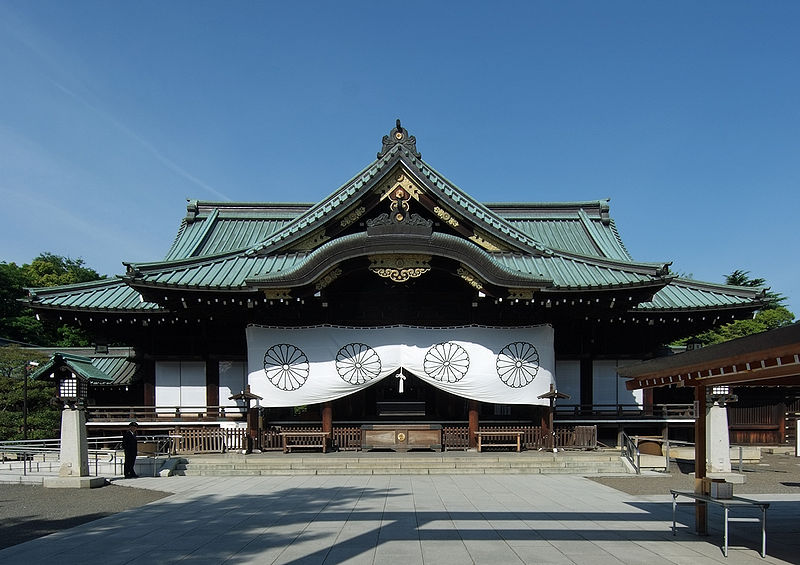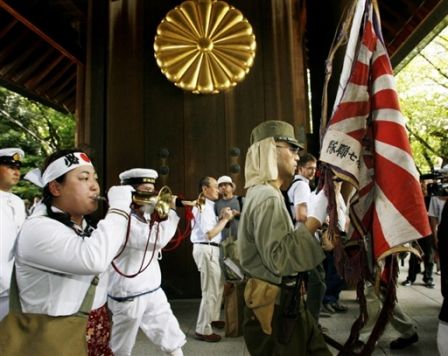The following is the introductory section of a paper by distinguished scholar Klaus Antoni first published in Asian Folklore Studies, Vol. 47, 1988: 123-136. The article entitled “Yasukuni-Jinja and Folk Religion: The Problem of Vengeful Spirits” can be read here. It cuts to the heart of the debate, clarifying the political consequences.
*****************

Since the first official visit paid by a Japanese Prime Minister to Yasukuni Shrine in Tokyo on the occasion of the 40th anniversary of the end of the Pacific war on August 15th, 1985, the problem of the Yasukuni Shrine is being discussed even in Western European newspapers.
We read that Yasukuni, the shrine for the war dead, is regarded as a symbol of Japanese militarism and that therefore official visits imply a vindication of that former political system. But what is not understood among the public here are the deeper roots of the problem.
The issue centers mainly on the question whether the shrine is a mere memorial, to be compared to the tombs of the Unknown Soldier in Western countries, or if it is a real shrine in the sense of a definite religious place, a holy site of the Shinto religion.
The political and ideological dimensions of this discussion are obvious. If the shrine is not a religious place, as it is declared by a strong and influential faction of the Association of Shinto Shrines (Jinja-honcho), then it could easily be taken under governmental control again, as it was until the end of the war.

The opposition foresees a revival of so called State Shinto, the allegedly nonreligious state cult of the Meiji up to the early Sh6wa period where the Shinto shrines were mere ceremonial stages for the celebration of folk ” customs ” in accordance with the fundamentals of kokutai thought.
Therefore the political dimension of the recent discussion is for the most part an extension of its religious aspect, that is to say of the question whether or not Yasukuni is a place of religion.

